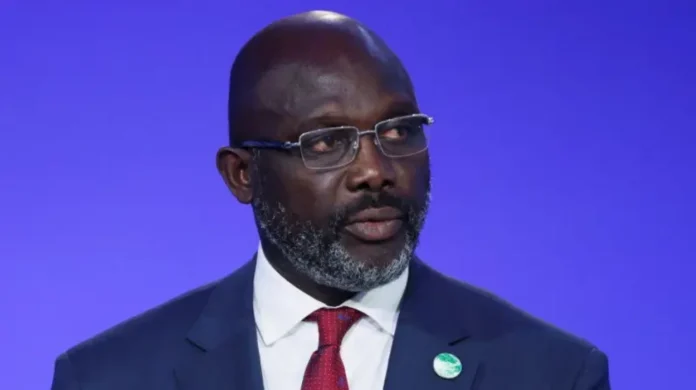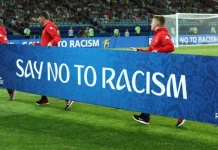FIFA’s 2025 launch of a Players’ Voice Panel comprising internationally known personalities like George Weah, Didier Drogba, and 14 others from different countries was positioned as a watershed moment in fighting racism in football. The group was created to consult on anti-racism education and punishment in sport, with the intention of infusing change with the richness of first-hand experience. The FIFA President Gianni Infantino stated that racism in sport is a “criminal act” and called for serious consequences for participants on and off the field who display racist behaviour. However, the pattern of racial abuse during qualifiers, league matches and global tournaments suggests a significant problem: the reactions to racist abuse have largely been symbolic, and lack serious consequences.
The enforcement gap in FIFA’s disciplinary system
FIFA had fined six national teams (including World Cup winners Argentina) in 2025 for racist behaviour during qualifying matches; FIFA levied these fines during the post-game presser. While these fines were covered extensively in the media and sports channels, they amounted to a punishment that was only financial – there was no other consequence. To many observers and players, these reactions failed to change behaviour.
The practice of suspensions, point deductions and tournament bans have been restricted. With no punishment, teams and fans have little incentive to stop the patterns of racism, established within and beyond the game, which have not changed in any way.
Referee discretion versus policy intent
The much-billed FIFA three-step framework on stopping, suspending or cancelling matches due to racism remains unequally applied. Several cases of racial abuse during the 2025 FIFA Club World Cup in the United States were not penalized by the match officials, which pointed to a tendency not to apply the rulebook to the stressful situation.
Referees are often pressured by sponsors, federations, and fans, and not supported institutionally to stop gameplay because of fan conduct. This erodes the confidence that players and fans have in these policies, stoking doubt about whether FIFA has the desire to prioritize integrity over spectacle.
Anti-racism rhetoric versus visibility at events
Previous FIFA campaigns such as the Says No Racism and Equal Game campaigns would feature prominently on the issue of stadium signage, player uniform and announcement broadcasts. But in the last year 2025 they have been apparently diminished. Games both on the continent of Africa and in Europe did not have designated anti-racism promotions, leaving the players vulnerable while diluting perceptions of the cause’s urgency.
The decline of stadium-focused messaging is a change in FIFA’s communication agenda and has helped to spur weakening public pressure and debate surrounding anti-racist reforms.
Digital silence amid online abuse
Social media abuse still disproportionately targets players of color, particularly around and after high-profile matches. FIFA introduced its Social Media Protection Service in 2025 to automatically track and block racist insults and threats. However, the feature has been attacked for partial language detection, loopholes in algorithms, and an inability to serve real-time assistance.
Players claim to have failed to receive warnings or interventions amid spikes of abuse, as clubs find it difficult to access prompt data that would underpin internal disciplinary actions. The lack of transparency in the system contributes to the increasing distrust between players and FIFA leadership.
FIFA’s global footprint complicates uniform policy enforcement
FIFA’s 211 associations are subject to radically different political systems, standards of culture, and enforcement levels. Where state or federation leaders have reduced racial discrimination, FIFA’s anti-racism procedures meet resistance or selective implementation.
This patchwork environment leads to unequal protection for players. A Scandinavian match might have strong anti-racism sanctions imposed, yet equivalent infractions in regions of Latin America or Southeast Asia occur without consequence. The legitimacy of FIFA’s worldwide commitment is harmed when justice seems conditional or geography-based.
Resource disparities among federations
Smaller football associations do not have the institutional infrastructure to implement FIFA requirements properly. Lacking trained anti-discrimination officers, real-time monitoring systems, or legal assistance to pursue disciplinary proceedings, implementation is impossible in practice.
FIFA has committed funding and training programs, yet 2025 audits show that most federations have not been provided with sufficient resources or technical support to maintain expected standards. This bottleneck further hinders uniform implementation of anti-racism rules.
Ground-level solutions must complement elite panels
Anti-racism policy cannot be top-down alone. Match officials, coaches, team doctors, and stewards must undergo mandatory training on discrimination detection and response. In 2025, FIFA launched regional workshops in Morocco, Indonesia, and Chile, but these remain voluntary and under-attended.
FIFA’s disciplinary boards should also create transparent, deadline-based procedures for reviewing accusations of racism. This presently is disheartening victims from reporting abuses while keeping perpetrators out of the spotlight and free from substantial sanction.
Local ownership of anti-discrimination reforms
FIFA should empower national federations to modify central policy to suit local circumstances while maintaining a core minimum level of accountability. Community-based work with supporters, schools, and youth clubs can assist in tackling the causes of racism within football supporter culture and facilitate sustained cultural change.
Broad reform is not just dependent on international celebrities such as Weah and Drogba putting their names to campaigns, but also on grassroots referees, match co-coordinators, and spectators sustaining the cause in daily match settings.
The 2026 World Cup will spotlight accountability
As the U.S., Canada, and Mexico-hosted 2026 World Cup approaches, FIFA is coming under increased scrutiny. With significant immigrant communities, fraught political environments, and enormous media penetration, the tournament will be a test of whether the governing body will be able to apply effective anti-racism safeguards on the global game’s grandest stage.
Federations must file updated anti-discrimination plans before the tournament, such as stadium surveillance technology and fan education strategies. If they fail to show improvement, they could face boycotts, public demonstrations, and damage to their reputation.
Reconciling public trust with private governance in football
FIFA’s anti-racism struggles reflect a wider conflict between worldwide sporting domination and popular expectation. At a time of increased accountability, football’s governing bodies cannot depend on branding and public relations to tackle structural disadvantage. The gap between top panels and day-to-day realities must be bridged through systemic reform, regular enforcement, and locally rooted education.
Whether FIFA steps up to this moment or falls back into performative activism will be decided not by the faces it puts on campaigns, but by the consistency, transparency, and equity of its actions in every match and on every platform.













